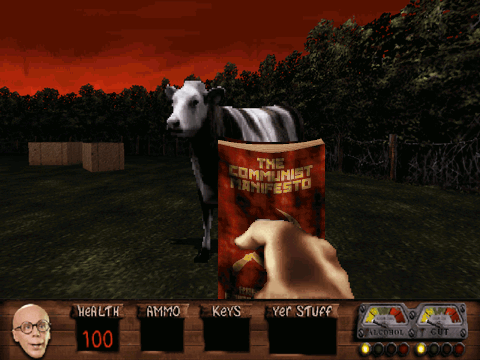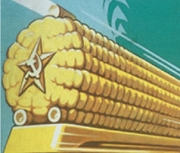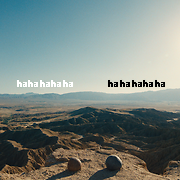|
Lostconfused posted:I was more referring to him being dismissive of a the peasant class as lacking in revolutionary potential. i haven't read all of marx's stuff so i don't remember where he says that, but he's certainly wrong if he does. the experience of the russian and chinese revolutions prove the importance of the peasantry pretty decisively quote:otherwise ah okay, yeah. on one hand, marx (elsewhere) uses peasants as a ready made example of how the product of labor can be divided into parts based on who's actually getting which part but, "surplus value" is a specific emergent property of free-market commodity exchange. if i'm your peasant and i grow you some corn and you take the corn and you eat it, you're not realizing capitalist surplus value (although you are clearly in the ruling class while i am in the working class and you are obviously exploiting me in the colloquial sense). surplus value happens when you sell something for more than it cost you to produce it, and the difference comes from the human labor that went into transforming the raw materials of that thing into the finished thing the way capital was originally explained/sold to me, as a matter of fact, is that it was a solution to the mystery of profit. how can capitalists make a profit? if you buy for X and sell for X+Y, where does Y come from? a feudal lord doesn't bother to buy and then sell things - they don't participate in the money-commodity-money+ cycle - so you don't need a theory of surplus value to explain where their power comes from or how they increase it
|
|
|
|

|
| # ? May 26, 2024 13:37 |
|
Heres the chapter from Ways of Looking by John Berger where he talks about animals, our cultural understanding of them, and how it was shaped by the transition from communal to feudal to mechanized production http://artsites.ucsc.edu/faculty/gustafson/FILM%20161.F08/readings/berger.animals%202.pdf Have fun reading if you wish- go “hog” wild 😄
|
|
|
|
indigi posted:lol I bought that book for my nephew lmao
|
|
|
|
Lostconfused posted:I was more referring to him being dismissive of a the peasant class as lacking in revolutionary potential. Peasants do not interact directly with the capitalist system. Neither do slaves and animals. If they did it would be a different (or hybrid) MoP. That paragraph basically says that Feudalism is not Capitalism. And the revolutionary potential of the peasants was one of the biggest points of theoretical discussion between marxist branches.
|
|
|
|
Ferrinus posted:i haven't read all of marx's stuff so i don't remember where he says that, but he's certainly wrong if he does. the experience of the russian and chinese revolutions prove the importance of the peasantry pretty decisively https://www.marxists.org/archive/marx/works/1874/04/bakunin-notes.htm quote:where the peasant exists in the mass as private proprietor, where he even forms a more or less considerable majority, as in all states of the west European continent, where he has not disappeared and been replaced by the agricultural wage-labourer, as in England, the following cases apply: either he hinders each workers' revolution, makes a wreck of it, as he has formerly done in France, or the proletariat (for the peasant proprietor does not belong to the proletariat, and even where his condition is proletarian, he believes himself not to) must as government take measures through which the peasant finds his condition immediately improved, so as to win him for the revolution; measures which will at least provide the possibility of easing the transition from private ownership of land to collective ownership, so that the peasant arrives at this of his own accord, from economic reasons. It must not hit the peasant over the head, as it would e.g. by proclaiming the abolition of the right of inheritance or the abolition of his property. The latter is only possible where the capitalist tenant farmer has forced out the peasants, and where the true cultivator is just as good a proletarian, a wage-labourer, as is the town worker, and so has immediately, not just indirectly, the very same interests as him. Still less should small-holding property be strengthened, by the enlargement of the peasant allotment simply through peasant annexation of the larger estates, as in Bakunin's revolutionary campaign.
|
|
|
|
honestly it seems to me that this bit: ", or the proletariat (for the peasant proprietor does not belong to the proletariat, and even where his condition is proletarian, he believes himself not to) must as government take measures through which the peasant finds his condition immediately improved, so as to win him for the revolution; measures which will at least provide the possibility of easing the transition from private ownership of land to collective ownership, so that the peasant arrives at this of his own accord, from economic reasons. It must not hit the peasant over the head, as it would e.g. by proclaiming the abolition of the right of inheritance or the abolition of his property." basically describes what the bolsheviks did, with broad success, although obviously mao iterated further on the potential of the peasantry to be a revolutionary force in and of themselves generally i DO disagree with marx about some of his pronouncements re: the global spread of capitalism and socialism (in particular the way he downplayed the extent to which imperialism just straight up ransacked and looted rather than industrialized and developed certain sectors of the world economy, and in his and engels's idea that a proletarian revolution necessarily had to begin by capturing the entire first world) but his take on the peasants there seems pretty even-handed Ferrinus fucked around with this message at 20:23 on Aug 26, 2020 |
|
|
|
Lightning Knight posted:picture books about socialism for children using child-friendly imagery that is also respectful of their intelligence would probably be really good tbh. this would probably help me
|
|
|
|
Going back to my original post about this I think the problem is that people assign a moral meaning to the word "value" when Marx mostly just means "the way capitalists make a surplus"? Saying "peasants don't create value" doesn't mean they're lazy or whatever, just that they don't produce "exports" if I'm following him correctly.
|
|
|
|
Ferrinus posted:basically describes what the bolsheviks did, with broad success, although obviously mao iterated further on the potential of the peasantry to be a revolutionary force in and of themselves As far as I got it it was the negative prediction of Marx that won out there. The peasants were mostly for other socialist parties, or at least not for the Bolsheviks. The peasants carried out their own separate revolution seizing land while Bolsheviks were seizing centers of government. Later that led to the dekulakization, collectivization, peasants with holding production, and a really bad famine. It was a painful transition. The changing economic policies from the Bolsheviks didn't help either. I got this from lib sources though so feel free to correct me.
|
|
|
|
apropos to nothing posted:its not trying to dodge the nature of the matter. its describing class and social relations and how those antagonisms shape and change society. if I cede the point that animals produce surplus value then does that make them laborers, does that mean youre going to go and try to unionize them and lead them in industrial strike action or militant class struggle? no, to say the obvious. but then we are saying that since we can't use the animals to achieve our goals, we don't care much how they're used by others. this is what it means to not grant them personhood. if an animal isn't a person, it might do work, but that doesn't general surplus value, and it might use things, but that use doesn't create use-value. All of those things require the judgment that the animal inherently deserves to live. This also applies to rivers. Some people in Aotearoa even got legal personhood granted to a river, in an attempt to have more people give it social personhood.
|
|
|
|
Lostconfused posted:As far as I got it it was the negative prediction of Marx that won out there. The peasants were mostly for other socialist parties, or at least not for the Bolsheviks. The peasants carried out their own separate revolution seizing land while Bolsheviks were seizing centers of government. Later that led to the dekulakization, collectivization, peasants with holding production, and a really bad famine. It was a painful transition. i don't know fine details about who which group supported prior to bolshevik dominance but that all sounds like a fair summary to me? my takeaway is that especially in countries like russia the peasants are an important force in and of themselves that need to be accounted for and included in pre- and post-revolutionary planning, they can't just be dismissed as backwards or useless for the sheer fact of not having been proletarianized yet
|
|
|
|
Wasn't the logic behind discounting peasants due to them backing Napoleon III in France?
|
|
|
|
people saying animals cannot organise as a class... have you EVEN read animal farm??
|
|
|
|
|
e-dt posted:people saying animals cannot organise as a class... have you EVEN read animal farm?? uphold old major thought
|
|
|
|
October has Lenin vacillating a lot as well as completely unable to admit fault or error. is that a decent pocket profile of the guy or is that image due to Mieville's Trot leanings or something? (idk)
|
|
|
|
lenin was an extremely intelligent and madly committed man, but he was also basically an intellectual exile politician who suddenly found himself in charge of a revolutionary party in the middle of total societal disintegration, following the betrayal of himself and his nearest comrades some years since by people he genuinely respected and even admired. he ran a large network of basically gangster cells in the russian empire from his small office in switzerland and interspersed his endless notes on the internal workings of the swiss social-democratic party with his directives to go forth and kill in the name of the revolution at home his organisation, built along his own doctrine of extreme defensiveness against state infiltration, was infiltrated by the state. at one point, almost everyone was ready to toss him except for the okhrana agent. he was naturally an irascible, dominant rear end in a top hat, and he was doing poo poo that almost nobody had ever done before him in an era of incredibly spotty information, slow communication and endless intrigue it's a stressful situation for the most even-tempered chap, and lenin wasn't that
|
|
|
|
what really fascinates me with lenin as a character is how human he feels when you read his texts or about his life. he loved kids and animals, though he had no children or pets of his own; there's an anecdote where he really likes a piece of music but basically shuts it down and starts ranting about how he can't allow himself to be sentimental. like, the poo poo he did very clearly weighed heavily on his conscience and he had to brutally suppress his own sensibilities i remain convinced that someone's going to write a really good opera about lenin one day - his biography has so many amazing story beats, up to getting outmaneuvered at his deathbed by the system he made to win the civil war
|
|
|
|
i remember hearing that he'd go to the theater or the orchestra or w/e with his wife and have to leave halfway through because he felt too emotionally overwhelmed
|
|
|
|
THS posted:a lot of you haven’t seen Chicken Run and it shows still lolin at this
|
|
|
|
sometimes i try to imagine what a huge horror show WW1 must've been to the radicals of the european labour movement. just this mind-shattering defeat even before the carnage really gets going. RIP jean jaures, too good for this world
|
|
|
|
V. Illych L. posted:getting outmaneuvered at his deathbed by the system he made to win the civil war what happen
|
|
|
|
V. Illych L. posted:sometimes i try to imagine what a huge horror show WW1 must've been to the radicals of the european labour movement. just this mind-shattering defeat even before the carnage really gets going. RIP jean jaures, too good for this world I remember that Rosa was seriously contemplating committing suicide after the SPD deputies voted to support the war. ToxicAcne fucked around with this message at 01:19 on Aug 27, 2020 |
|
|
|
indigi posted:what happen the whole Lenin's Testament debacle is what i'm specifically thinking of, but really the desperate situation where it's becoming obvious that russia must try to do communism on its own with the structures he's left it just works in general imo
|
|
|
|
THS posted:the truly massive increase in anti-china sentiment over the last few years does lead me to reflexively push back against it, because a few years from now there’s a possibility we’ve whipped up enough americans to manufacture consent for a war It also shows how situational everything is "big ticket" issues like the Uyghurs, trade and even HK have been in the background for years and now suddenly have been brought into the spotlight. It isn't that there "isn't anything going on there" but it is very clear the China narrative has been prioritized over the Russia narrative more recently (which was prioritized over the Iranian narrative which was prioritized over the North Korean narrative etc etc etc) I would say it is only going to get worse over time there is no relief valve for the Western media to move to because the Chinese economy and its military is only going to continue to grow. If anything the narrative will only continue to expand until there is no resistance to it. (Also, I would say the Soviets probably would have done the same about the Uyghurs, HK, and trade. Beijing had pretty standard M-L responses to each.) Ardennes fucked around with this message at 01:37 on Aug 27, 2020 |
|
|
|
ToxicAcne posted:I remember that Rosa was seriously contemplating committing suicide after the SPD deputies voted to support the war. i don't really think this meme is funny anymore but i seriously can't sleep tonight so here 
|
|
|
|
V. Illych L. posted:sometimes i try to imagine what a huge horror show WW1 must've been to the radicals of the european labour movement. just this mind-shattering defeat even before the carnage really gets going. RIP jean jaures, too good for this world I'm still sort of in awe that, after 4 years of bloody war, with a major pandemic sweeping the globe, labour uprisings and revolutions brewing, the allied powers still deemed it absolutely necessary to invade the nascent soviet state. there were so many countries teetering on the edge and they thought the best thing to do was to send a bunch of disgruntled soldiers into the Siberian wastes to try to beat the Reds. I know it's not surprising, certainly not now, but the audacity of it is kinda amazing to me.
|
|
|
|
Dreylad posted:I'm still sort of in awe that, after 4 years of bloody war, with a major pandemic sweeping the globe, labour uprisings and revolutions brewing, the allied powers still deemed it absolutely necessary to invade the nascent soviet state. They mostly got away with it because the intervention was pretty half hearted and disorganized, and none of the foreign powers had to strength to seriously mobilize conscripts.
|
|
|
|
apropos to nothing posted:so you believe that the cows in an industrial farm have the capacity to resist their situation on a social basis? like they can engage in mass coordinated action against their owners? if so then lol if not then congrats we agree that animals are in fact not a class which is capable of class antagonism 
|
|
|
|
Ferrinus posted:i remember hearing that he'd go to the theater or the orchestra or w/e with his wife and have to leave halfway through because he felt too emotionally overwhelmed the truly relatable leftist icon
|
|
|
|
Didnt Marx see slaves as people reduced by the MoP to but a mass of fixed (and therefore constant) capital? In other words, the necessary time of slave labor does not contribute to the exchange value of the product, only the necessary time of non-slave labor to reproduce the slave. Wouldn't that be equivalent to the situation regarding animals? Ruzihm fucked around with this message at 06:39 on Aug 27, 2020 |
|
|
|
|
V. Illych L. posted:lenin was an extremely intelligent and madly committed man
|
|
|
|
Lenin also lifted.
|
|
|
|
lenin also spoke wike chawwotte fwom twiaws of mana
|
|
|
|
Lenin pronounced his R's with a trill, like in modern French or German. I've met several Russians who do the same, I'm not sure it's thought of as a serious speech impediment.
|
|
|
|
Do you mean the sack of potatoes thing? AFAIK he meant that not being around other workers, like in a factory, makes it harder for peasants to relate to one another and creating a shared social understanding of class. Because of the not being around one another all day.
|
|
|
|
Mr Shiny Pants posted:Do you mean the sack of potatoes thing? AFAIK he meant that not being around other workers, like in a factory, makes it harder for peasants to relate to one another and creating a shared social understanding of class. Because of the not being around one another all day. yeah the point of the metaphor was that they are a bunch of discrete entities without the same level of overlap and interpersonal cooperation of, say, a manufacturing floor in a factory.
|
|
|
|
Ferrinus posted:the way capital was originally explained/sold to me, as a matter of fact, is that it was a solution to the mystery of profit. how can capitalists make a profit? if you buy for X and sell for X+Y, where does Y come from? a feudal lord doesn't bother to buy and then sell things - they don't participate in the money-commodity-money+ cycle - so you don't need a theory of surplus value to explain where their power comes from or how they increase it I've never understood this argument for the labour theory of value. What's mysterious about where profit 'comes from'? Profit is accounted monetarily, a capitalist makes profit if he sells the product created for more than the cost of the inputs. Capitalists in aggregate can make a profit if a non-capitalist segment of the economy loses money and/or if additional money is created.
|
|
|
|
Ferrinus posted:i haven't read all of marx's stuff so i don't remember where he says that, but he's certainly wrong if he does. the experience of the russian and chinese revolutions prove the importance of the peasantry pretty decisively In a feudal society the lord takes the surplus of commodities. A baker just needs one bread a day but makes 10, the surplus is 9. In a capitalist society Y is determined by supply and demand or an equivalent value, but the worker only gets paid a wage. We are not talking about the value of the commodity, it is always Y, just that the worker is paid less than Y. I am still working my way through Capital and it is not in English, so this is all IMHO. Peel posted:I've never understood this argument for the labour theory of value. What's mysterious about where profit 'comes from'? Profit is accounted monetarily, a capitalist makes profit if he sells the product created for more than the cost of the inputs. Capitalists in aggregate can make a profit if a non-capitalist segment of the economy loses money and/or if additional money is created. In your argument one of the inputs is the wages for the workers right? The labour theory of value takes a step back, wages are only a thing in a capitalist society because in a feudal society there are no wages but still products are created that have value. It tries to explain what creates the value of a product and the conclusion it arrives at is that all value of a product is created by labour. Because without the labour it would just be a stack of inputs, nothing is created. BTW if I am not mistaken the LTV is from Smith and Ricardo. Mr Shiny Pants fucked around with this message at 10:05 on Aug 27, 2020 |
|
|
|
Peel posted:I've never understood this argument for the labour theory of value. What's mysterious about where profit 'comes from'? Profit is accounted monetarily, a capitalist makes profit if he sells the product created for more than the cost of the inputs. Capitalists in aggregate can make a profit if a non-capitalist segment of the economy loses money and/or if additional money is created.
|
|
|
|

|
| # ? May 26, 2024 13:37 |
Homeless Friend posted:Not Moo. Us.
|
|
|
|






























